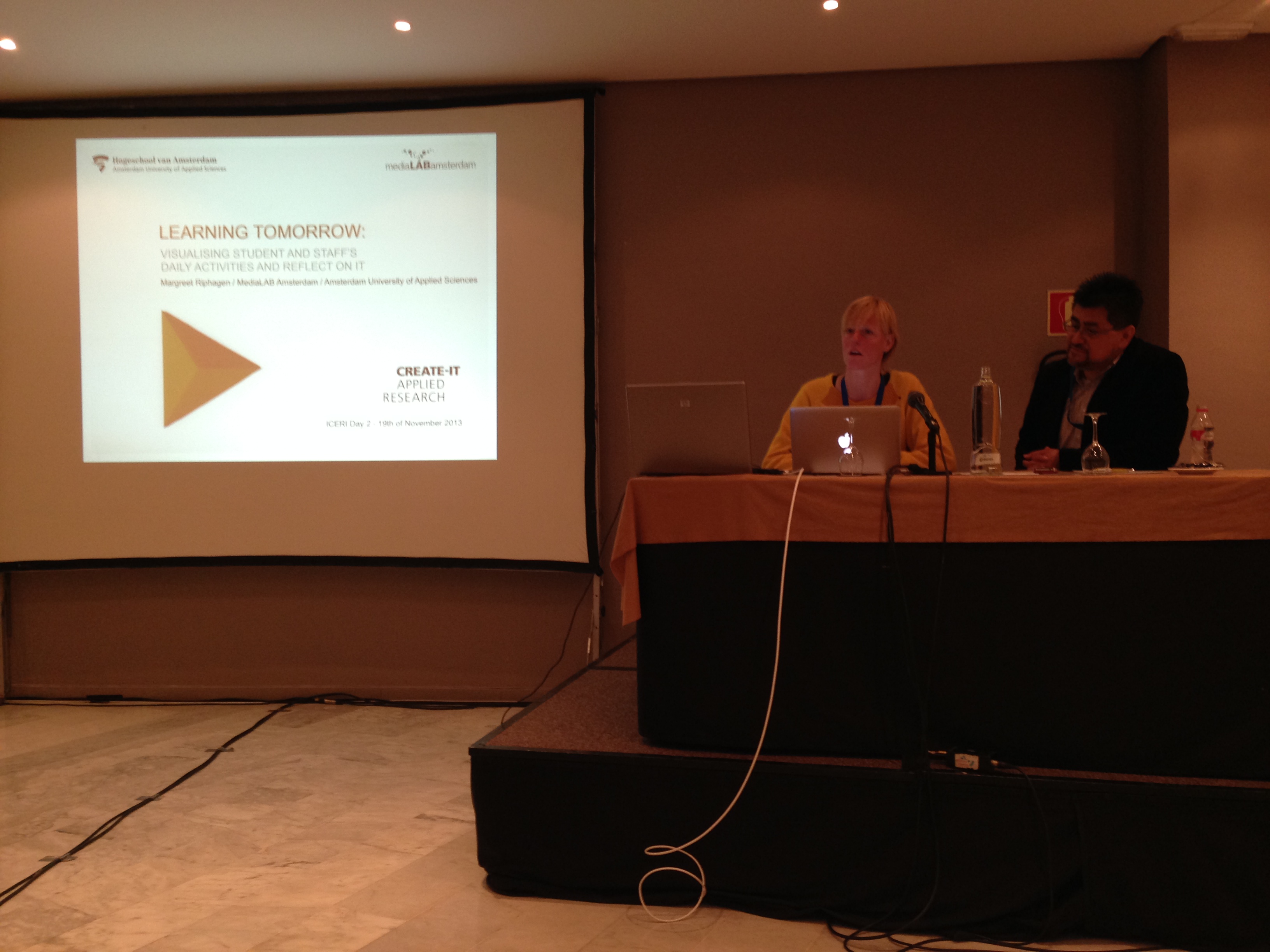The last two days I visited the 6th International Conference of Education, Research and Innovation: ICERI 2013. During this conference I presented the following paper: Learning Tomorrow: Visualising student and staff’s daily activities and reflect on it. The paper has been written in close collaboration with Marco van Hout, Daan Krijnen en Gijs Gootjes. Download the full paper here.
This conducted research was part of my own research conducted for my recently completed master Information Studies, Human Centered Interaction. The original title of the paper is: Supporting Reflective Learning For Daily Activities Using An Interactive Dashboard. Download the thesis here.
Abstract
Learning Tomorrow is a program at the Amsterdam University of Applied Sciences (AUAS) that stimulates the use of digital tools to enable a more personal, informal and collaborative way of working within the university. Moreover, it raises awareness of sedentary behavior, to support its students and staff physical activity. This paper discusses a first study that was conducted to understand the current state of physical activity within the context of the AUAS. With the use of QS (Quantified Self) technology, data was gathered from a 4-week field trial in which 24 participants (both students and teachers) used a Fitbit and a GPS tracker. The collected data was analyzed to find out whether the use of specific technology and tools would lead to a better overview of people’s physical activity. This study also aims to evaluate the effectiveness of using a visual analytics tool [11] to facilitate insight into how this daily physical activity data yields to reflective learning in order to promote continuous learning and improve future experiences. The results indicate that the combination of both GPS tracking and a Fitbit for stated period, with only a limited number of participants, can deliver a clear overview of physical activity in general and more specifically of routes that are taken. However, results also indicate that data alone is not everything either. Contextual understanding was found to be a vital addition.
Keywords: Quantified Self, Fitbit, GPS Tracking, Visual Analytics, Physical Activity, Reflective Learning, Visual Learning Patterns, Learning Tomorrow


